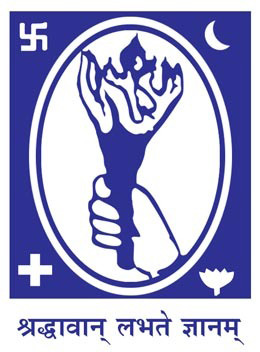
Anti-ragging Cell
What is ragging?
Any disorderly conduct whether by words spoken or written or by an act which has the effect of teasing, treating or handling with rudeness a fresher or a junior student.
Indulging in rowdy or undisciplined activities which cause or are likely to cause annoyance, hardship or psychological harm or raise fear or apprehension thereof in a fresher or a junior student or related harm is termed as ragging. Asking the students to do any act or perform something which such student will not do in ordinary course and which has the effect of causing or generating a sense of shame or embarrassment so as to adversely affect the physique or psyche of a fresher or a junior student, among other things, is termed as ragging.
The action taken by the Government against the schools and colleges from where complaints in regard to ragging have been received and the details of such colleges during the said period; and UGC is taking actions as per the UGC Regulations on curbing the menace of ragging in higher educational institutions, 2009. Details of the action taken to address the complaints is also available at the website www.antiragging.in & www.amanmovement.org The UGC has accorded top most priority to curtail the menace of ragging in institutions of higher education. The following measures have been undertaken by the UGC :-
- A nationwide 24X7X365 toll free anti-ragging helpline
- UGC has constituted Coordination Committee and Inter Council Committee for effective measures of anti-ragging in Higher Educational Institutions.
- UGC regulations on curbing the menace of ragging in Higher Educational Institutions, 2009.
- UGC (Promotion of equity), Regulations, 2012
- Circulars and public notices have been issued to stop ragging in the institutions of Higher Education. The Higher Education institutions have been requested to organize debates etc. for controlling ragging in all its form. UGC has notified the UGC Anti Ragging Regulations on curbing the menace of ragging in higher educational institutions, 2009. The Commission has made it mandatory for all institutions to incorporate in their prospectus the directions of the Government regarding prohibition and consequences of ragging.
A nationwide toll free 24x7 anti ragging helpline 1800-180-5522 in 12 languages has been established which can be accessed by students in distress owing to ragging related incidents. UGC has also developed the Anti Ragging Mobile Application for filing the complaint on ragging, filing the affidavit and for calling the Toll Free Anti Ragging Helpline Number and the same may be downloaded from Google Play Store.
UGC has developed an Anti Ragging website Le. www.antiragging.in. The portal contains record of registered complaints received and the status of the action taken thereon. Secretary, UGC sends the circular twice a year regarding strict compliance of UGC Regulations on curbing the menace of ragging in higher educational institutions. Details may please be seen at UGC website: www.ugc.ac.in From time to time the UGC has also issued Public Notice in leading national newspapers to spread awareness about ragging.
University Grants Commission has amended its anti ragging regulations to include physical or mental abuse on ground of ethnicity, caste, religion, colour, regional background, linguistic identity, national and sexual orientation.
The 3rd Amendment of UGC Regulations on "Curbing the menace of Ragging in Higher Educational Institutions, 2016 according to this:
3 (j) Any act of physical or mental abuse (including bullying and exclusion) targeted at another student (Fresher or otherwise) on ground of colour, race, religion, caste, ethnicity, gender (including transgender), sexual orientation, appearance, nationality, regional origins, linguistic identity, place of birth, place of residence or economic background.
Members:
- Saswati Sanyal, Principal
- Krishnendu Sarkar, IQAC Coordinator
- Kaustav Dutta Chowdhury, Teachers’ Representative, Governing Body
- Ashesh Garai, Teachers’ Representative, Governing Body
- Samiran Mondal, Teachers’ Representative, Governing Body
- Md Ahmadullah, Secretary, Teachers’ Council
- Sri Tapas Narayan Ray, Associate Professor in Commerce
- Chumki Majumder, Associate Professor in English
- Jayanti Sen, Associate Professor in History
- Sayonti Mitra, Associate Professor in English
- Sahana Sen Mazumder, Associate Professor in Physiology
- Sucharita Roy, Associate Professor in Economics
- Sri Tridib Chakravorty, Non-Teaching Staff Representative, Governing Body
- Chandan Maity, Parent Representative
- Two Students Representative
- IC, Amherst Street Police Station
- Dr. Chayanika Ghose, Psychologist
Women’s Cell
Composition
Joint Convener:
- Uttama Ray
- Kakoli Chatterjee
Members:
- Suratna Ganguly
- Jayanti Sen
- Shrabani Sen
- Moumita Datta

 ISO Certified -
ISO Certified - 